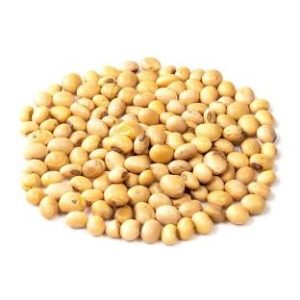 Soy refers to soybeans, a legume native to East Asia that has become one of the world’s most important crops.
Soy refers to soybeans, a legume native to East Asia that has become one of the world’s most important crops.
It is high in protein (roughly 40% protein content).
Soy contains all essential amino acids
It is a good source of fiber, iron, calcium, and B vitamins, and Rich in isoflavones.
Common forms: Whole soybeans (edamame when immature) Soy milk Tofu (coagulated soy milk) Tempeh (fermented soybeans) Soy sauce Miso (fermented soybean paste)
Uses include: Food products
Animal feed Industrial products (biodiesel, plastics, lubricants) Meat and dairy alternatives
Soy foods contain high levels of phytoestrogens, mainly in the form of isoflavones.
Isoflavones are natural estrogen receptor modulators that possess both estrogen like and antiestrogen properties.
Have nearly a pure estrogen receptor beta effect.
Constituents of soy have anticancer effects including the inhibition of DNA topisomerases I and II, proteases, tyrosine kinases, inositol phosphate, and angiogenesis and may boost immune responses and possess antioxidative effects (Taylor CK).
Soy consumption inversely related to risk of breast cancer.
In a study of 5042 patients breast cancer patients in a Shangai Breast Cancer Survival Study indicated that soy consumption was significantly associated with decreased risk of death and recurrence with adjusted 4 year mortality rates of 10.3% and 7.4% and 4 year recurrence rates os 11.2% and 8%, respectively, for women in the lowest and highest quartiles of soy protein intake (Shu XO).
In a multicenter, randomized, double-blind, placebo-controlled 24-month trial conducted to assess the effect of 80 or 120 mg of daily aglycone hypocotyl soy isoflavone supplementation on quality of life in 403 postmenopausal women using a validated Menopause-Specific Quality of Life questionnaire: scores at 1 year and 2 years were similar to baseline. and there no differences in domain scores among treatment groups (Amato P et al)..
Daily consumption of a supplement containing soy protein isolate for 2 years after radical prostatectomy does not reduce biochemical recurrence of prostate cancer in men at high risk of PSA failure(Bosland MC et al).
